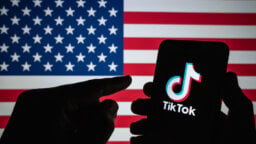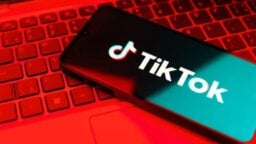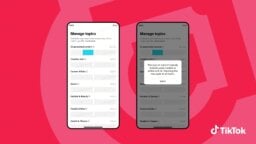Dear reader, allow MBW to recklessly mash our keyboard, thricely.
;ioewhf
efoiuhwe;foigwef;ewohugf
weoifei7otfgwelfuiy98
All gobbledegook, obviously.
But you know what they say about enabling a warehouse full of primates to endlessly hit typewriters – eventually, at some point on an infinite timeline, one of them will type the complete works of Shakespeare.
So if we kept mashing, and mashing, and mashing, who’s to say we might not write this: “Due to security risk, the TikTok app is no longer permitted on mobile devices that access Amazon email. If you have TikTok on your device, you must remove it by July 10 to retain mobile access to Amazon email.”
This, at least, offers one plausible suggestion (on a very scarce menu) as to how Amazon could have written and sent the above set of words, via an official company email, to its workforce on Friday (July 10)… by mistake.
Because after TikTok publicly expressed its shock and surprise at the memo, Amazon screeched into a rather startling U-turn.
Hours after the story broke about Amazon’s TikTok email yesterday, a spokesperson for the Jeff Bezos-run company sent out a new version of events to media.
“This morning’s email to some of our employees was sent in error,” they said. “There is no change to our policies right now with regard to TikTok.”
So, to be clear, TikTok is now officially un-banned at Amazon. This is getting downright bizarre, no?
In the wake of Amazon’s email coming to light yesterday, TikTok said in a statement: “While Amazon did not communicate to us before sending their email, and we still do not understand their concerns, we welcome a dialogue.”
TikTok also offered a denial earlier this week in response to a suggestion from US Secretary of State, Mike Pompeo, that it was harvesting user data and giving it to the Chinese government.
A TikTok spokesperson said: “TikTok is led by an American CEO, with hundreds of employees and key leaders across safety, security, product, and public policy here in the US.
“We have no higher priority than promoting a safe and secure app experience for our users. We have never provided user data to the Chinese government, nor would we do so if asked.”
Seemingly inspired by a decision by India’s government to ban the Bytedance app over national security concerns, on Monday (July 6), Mike Pompeo suggested that President Donald Trump’s administration was “certainly looking at” doing the same.Music Business Worldwide





